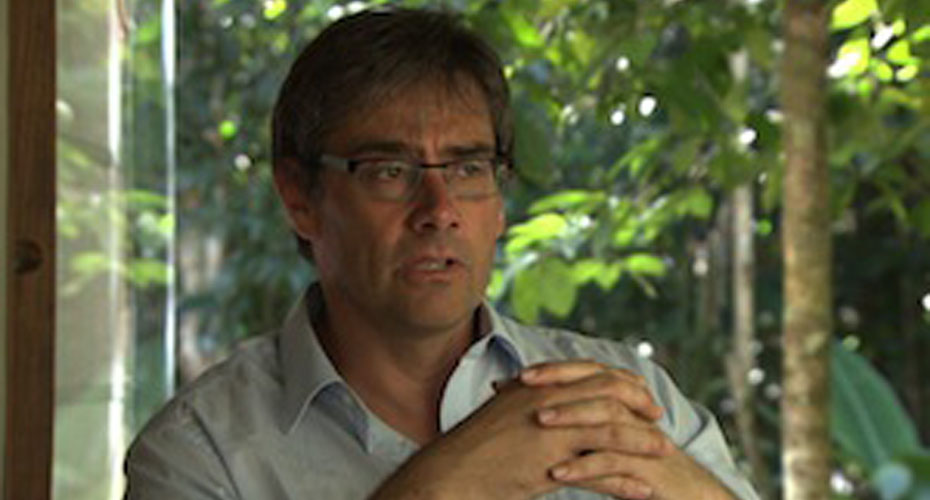Past students discuss the creation of their educational song for school children
Past student discusses the app they designed to educate children about making environmental choices.
Climate Emergency
Climate Emergency
Climate Emergency
Climate Emergency
Challenge overview
This exciting and thought-provoking challenge explored technological and societal challenges, as well as the environmental impacts and implications associated with the global climate emergency.
Students had the opportunity to hear from a range of experts, including climate change scientists and world-leading academics. As part of their group work with students from other disciplines, students came up with their own project which is both creative and scientific, addressing an area of climate change. This could include, but is not limited to, raising education and awareness of climate change, making an impact on climate change locally, or looking at what can be done on a global level to minimise the negative effects of climate change.
2019 summary
In 2019, academic leads Professor Peter Cox and Professor Jim Haywood appeared alongside speakers, panellists and judges from the Carbon Brief, the Economist and leading experts from the Met Office research team; as well as ‘home grown’ talent from the University of Exeter.
Events included a masterclass on climate communication and debunking climate myths, and a provocative interactive debate on whether society should adapt, mitigate or engineer its way out of the pending global warming catastrophe.
Students took inspiration from these talks and events when working on their group projects. Each group was set a unique challenge such as creating a video to ‘debunk’ climate change myths and trying to make it go viral, or deciding how $100 billion could best be spent to tackle climate change. One group of students was tasked with coming up with ideas for how the University should respond to the Climate Change emergency. Another group was tasked with creating an educational resouce to engage and educate primary school children on climate change. As part of this, the students visited Woodbury and Bickleigh Primary School to carry out market research, and pitched their final ideas to the school children towards the end of the week.
Students created outputs as part of their projects, and these included videos, posters and app prototypes. On Friday morning, they presented their work to other students on their Challenge and to an expert panel that included Dame Julia Slingo, the former chief scientist of the UK’s Met Office and one of the most influential leaders of the Met Office climate strategy of the past few decades. Students then showcased their work in the day at an exhibition in the Forum, which was attended by students from all Challenges, University staff and members of the general public.
Enquiry groups
Enquiry groups are the subtopic of the challenge that students focus on for Grand Challenges Week.
Here are some enquiry group examples.
In this enquiry group, students could design an educational package to engage primary school children with the impact of climate change. The educational package included interactive tools such as posters, board-games, top-trumps, apps and other educational products.
Climate engineering, sometimes called geoengineering, is trying to counteract climate change by either sucking carbon dioxide out of the air, or making the planet brighter. Students in this group looked at the pros and cons of this as a technique.
Debunking myths surrounding climate change. Can you identify the truth and communicate it clearly and engagingly?
Students could present information in a variety of ways, including a climate change communication campaign to gain traction and raise awareness online.
The University of Exeter is increasingly aware of its own impact on climate and the environment having declared its own climate emergency and ambition to be a Civic University embedded in the South West region and beyond. Is it doing enough? What is the role of the students, staff and the public in a climate emergency? Can citizens’ assemblies and student protests transform the politics of climate change at University/Devon/UK/global levels?
Climate change is likely to impact on human health in a number of ways, from heat induced mortality to increased risk of vector borne disease, from increased mental health risks to impacts on diets. The health system is also responsible for 5.4% of the UK’s greenhouse gas emissions.
In this enquiry group, students will explore current and upcoming issues of climate change affecting health and wellbeing and examine how health sector can best respond to the climate emergency. Students may also investigate how individuals and organisations could raise awareness and prepare the public to prevent or mitigate against these challenges.
Student projects
Some student projects from previous years are shown below.
Climate Heroes: An app that is a hero and villain based game, as a fun, engaging way to teach children about sustainability and climate change.
- Video of app prototype
- Instagram page
- Facebook page
- Promotional posters 1, 2, 3, 4
Earth Hero: An interactive app which serves as an educational game to inform children about their impact on the planet and how they can make responsible choices in relation to the environment.
- Video of app prototype
- Promotional video
- Posters 1 and 2
- Presentation
- Handout
Green is the New Black: Investment plan for allocating $100 billion to tackle climate change. Investment is in four key areas: renewable energy, business investments, reducing food waste and transport
Asking the people of Exeter about their knowledge of climate change and debunking common misconceptions and myths.
A board game, to educate children on methods of geoengineering, to help combat climate change in a city environment
GeoCity: Raising awareness about what geoengineering is, and whether or not it's a viable option for the future
Fight the Flood: A board game to educate people about geoengineering, displaying the pros and cons in a fun and informative way
- Images of game 1 and 2
- Poster
- Presentation
Act: An inspirational spoken word short film attempting to debunk three climate change myths, supported by an academic poster and a digital presentation
Sustain-label: An environmental impact labelling system for food products and ‘sustainable swaps’, stop motion video. The project combats the climate myth that 'one person can't make a difference' by promoting simple lifestyle changes.



